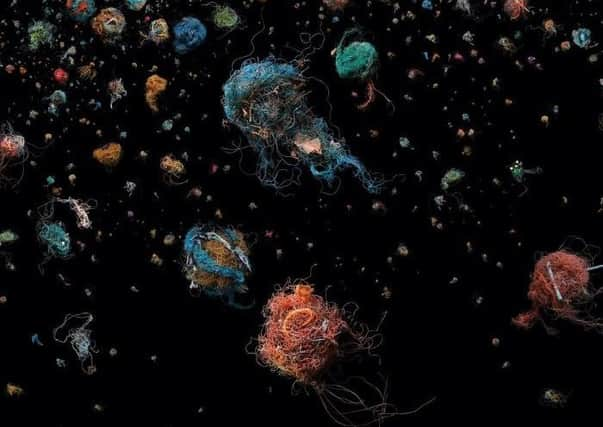Sussex museum creates online exhibition highlighting the issue of plastic in our seas


And it aims to address the current global crisis of marine plastic pollution
The show will be on display as part of the new Ocean Blues website launched by the museum dedicated to exploring the environmental threats to our oceans, the importance of research into our seas and some of the Sussex environmental heroes and organisations dedicated to supporting them.
Visit www.oceanblues.brightonmuseums.org/
Advertisement
Hide AdAdvertisement
Hide AdCoinciding with National Marine Week 2020, the Our Plastic Ocean exhibition will be available to be viewed online only for 12 weeks. The exhibition was to have been on show in Brighton Museum but following the closure of the venue following the lockdown, it has been moved online.
Photographer Mandy Barker collects debris from shorelines across the world and transforms them into powerful and captivating images. At first glance, her images are reminiscent of sea creatures and corals suspended in a dark void beneath the sea, but closer inspection reveals a more disturbing reality.
From footballs to fishing nets, cotton-buds to coffee-cup lids, Barker highlights the incongruous plastic items now ubiquitous in our seas. Currently, eight million tonnes of plastic end up in the world’s oceans every year and if these trends continue, our oceans could contain more plastic than fish by 2050.
From accompanying scientists on an expedition from Hawaii to Japan, tracing the debris of the 2011 Tsunami, to a voyage on board Greenpeace’s Beluga II to the Inner Hebrides, Mandy Barker has followed a trail of plastic pollution across the globe. The images resulting from these expeditions have become some of the most recognisable visual commentary on marine plastic pollution.
Advertisement
Hide AdAdvertisement
Hide AdOur Plastic Ocean spans a decade of Barker’s work including the series Soup, meticulously detailed composite images of discarded plastic objects; Albatross revealing 276 pieces of plastic found inside the stomach of a 90 day old albatross chick; and Beyond Drifting, which sees Barker trace the footsteps of nineteenth century botanist John Vaughan Thompson who collected plankton specimens, the ocean’s most basic life-form.
The exhibition also features notebooks and journals documenting Barker’s voyages and research.
Barker said: “For the past decade, I have researched and documented the impact of plastic waste in the oceans, combining art and science to raise awareness. I hope to inspire positive action in tackling this increasing environmental challenge which is of global concern”.
Our Plastic Ocean is an Impressions Gallery touring exhibition curated by Angela Sheard.
Advertisement
Hide AdAdvertisement
Hide AdBMAG Creative Programme Curator Jody East said: ”Our museums are intimately connected to the sea. Objects in the museum collections reflect generations of people living off the sea, enjoying the sea and using the sea for health benefits. We will use our collections online to highlight how oceans are threatened by human intervention, such as plastic pollution, industrial overfishing and chemical contamination. Working with our specialist partners we hope to show you that many people are trying to combat the ocean crisis and ensure it is protected for future generations. We can all do our bit and are all in this together.”
Councillor Marianna Ebel, joint chair of the Tourism, Equalities, Communities and Culture Committee, said: “We are proud to launch Our Plastic Ocean as part of our new Ocean Blues website which is part of our ongoing work to raise awareness of the biodiversity emergency.
“Barker’s images are both rich in detail and hard-hitting in subject, exploring an urgent and timely issue.
“As a seaside city, we are all too aware of the effects of plastic waste on our marine environment. We are currently exploring how our Single Use Plastic Policy, which aims to reduce the use of plastic in the city, could be adapted tackle to growing problem of PPE waste.”
Advertisement
Hide AdAdvertisement
Hide Ad“As is often the power of art, this exhibition reminds us of the importance of looking after our beaches, and we hope it will help inspire all of us to focus on maintaining our seafront as an enjoyable outdoor space in our city.”